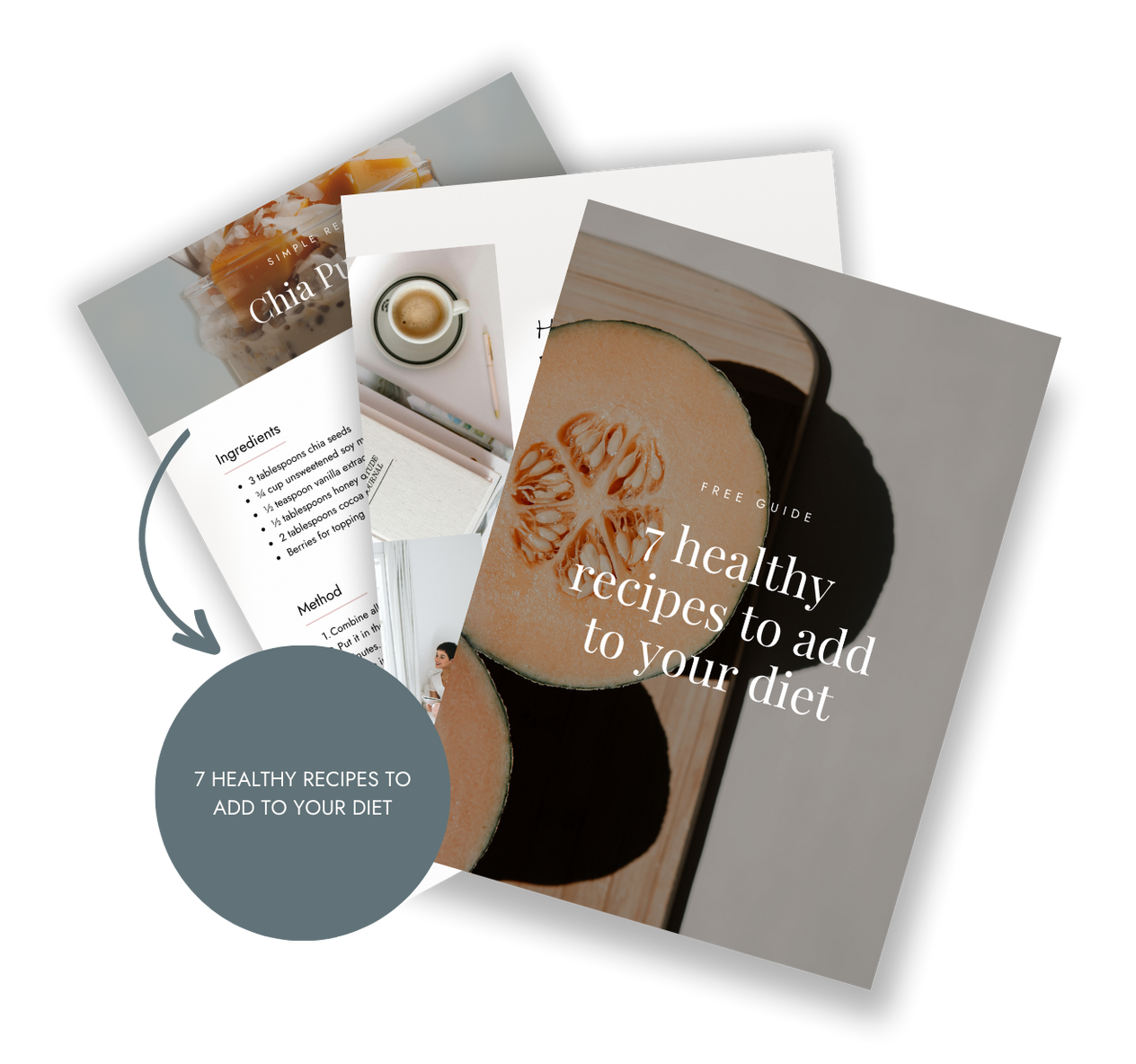How to stop menopause weight gain
If it feels like your body changed overnight—you’re not imagining it. Weight gain during perimenopause and menopause is incredibly common, even when your diet and exercise habits haven’t changed. Shifting estrogen, progesterone, cortisol, insulin, and thyroid levels can all impact how your body stores fat, especially around the midsection.
And yet, most women are told to “just eat less and move more”—advice that only adds shame and frustration.
At Elle MD, we know menopause weight gain isn’t about willpower, it’s about physiology. In this guide, we’ll walk you through the functional medicine approach to understanding your hormones, supporting your metabolism, and finding a plan that actually works for your body. Because you don’t need to fight your body. You just need a strategy that works with it.
We’re Dr. Erin Hendriks and Dr. Maricela Castillo MacKenzie, founders of Elle MD—a functional medicine and medical weight management clinic in Royal Oak, Michigan. We help women uncover what’s really driving midlife weight struggles, from hormone imbalances to gut inflammation, and create personalized plans so their bodies finally feel safe enough to release weight naturally.
If you’re tired of “eat less, move more” advice that doesn’t work, this guide will help you understand why your body is holding on to weight—and how to work with it, not against it.

Why weight gain happens during (and after) menopause—and why it’s not your fault
Midlife weight gain is common—and it has more to do with biology than willpower. Research indicates that across the menopause transition, 50% of women report gaining at least 10 lb (4.5 kg), while 20% gain even more Frontiers+15Obesity Action Coalition+15Verywell Health+15. This shift is driven by complex hormonal changes—not because you're doing something wrong.
How long does menopause weight gain last?
Studies show that women typically gain about 0.5–1 lb (0.2–0.5 kg) each year in the eight years surrounding the final menstrual period My Menoplan. After menopause, weight usually stabilizes—if lifestyle adjustments are made. While the gain may feel sudden, it’s actually a gradual buildup influenced by hormones and metabolism.
The role of estrogen, cortisol, and insulin in midlife weight gain
Declining estrogen reduces metabolic rate and shifts fat storage toward the abdomen PMC+13eatingwell.com+13My. Meanwhile, increased cortisol—often due to stress, sleep disruption, or dieting—prompts the body to lock in belly fat. Lower estrogen also drives insulin resistance, making it easier to gain weight even when diet and activity levels haven’t changed .
Why traditional diets often backfire during this stage
Conventional diets—especially low-calorie or restrictive approaches—can worsen hormonal imbalances in menopause. They stress the body, raise cortisol, reduce muscle mass, and further slow metabolism. Instead of a “diet battle,” functional medicine supports the body so it feels safe enough to release weight naturally.
How to Stop Weight Gain During And After Menopause Without Crash Diets or Over-Exercising According to Functional Medicine
- Focus on hormone balance first—estrogen, cortisol, and insulin control how your body stores and burns fat.
- Prioritize gut health to reduce inflammation and improve estrogen detox.
- Maintain or build muscle mass with strength training to keep your metabolism active.
- Regulate blood sugar through nutrient-dense meals that combine protein, healthy fats, and fiber.
- Support your nervous system—chronic stress keeps your body in “fat-storing” survival mode.
Menopause weight gain isn’t just about calories—it’s your body responding to stress, hormonal shifts, and inflammation. A root-cause approach means looking beyond “eat less, move more” and understanding why your body is holding onto weight in the first place. Functional medicine works by calming cortisol levels, healing gut inflammation, and supporting your liver so estrogen can be metabolized properly. Once these systems feel safe and balanced, your body naturally shifts out of “protection mode,” making weight loss a byproduct of healing—not punishment.
Postmenopausal weight gain can linger because the same hormone and metabolic shifts that started it don’t disappear when your period does. Estrogen stays low, muscle mass naturally declines, and your metabolism slows unless you actively support it. Functional medicine focuses on long-term strategies: maintaining lean muscle through strength training, optimizing thyroid and insulin levels, and keeping gut inflammation low. The goal isn’t crash dieting—it’s creating a body that feels balanced enough to release weight consistently, even years after menopause begins.
The Importance of Muscle, Metabolic Health, and Nervous System Regulation
Building and maintaining muscle is one of the most effective ways to prevent weight gain during and after menopause. Lean muscle keeps your metabolism active, helping you burn more calories at rest. Yet many women lose muscle mass during this stage due to hormonal shifts and overly restrictive diets. Strength training—paired with enough protein—preserves muscle and supports metabolic health.
Equally important is your nervous system. Chronic stress keeps your body in “fight-or-flight” mode, which drives cortisol higher and signals your body to store fat—especially around the belly. Regulating your nervous system through breathwork, gentle movement, and restorative sleep tells your body it’s safe, allowing fat to be released instead of stored.
Why Blood Sugar Balance Is the Missing Piece for Most Women
Many women focus on eating less or cutting carbs, but the real key is keeping blood sugar steady. Spikes in glucose lead to insulin surges, which lock fat in place and increase cravings. Balanced meals with protein, healthy fats, and fiber keep insulin levels stable and reduce the hormonal signals that drive fat storage. When blood sugar is managed properly, your body burns fat more efficiently and your energy remains steady throughout the day.

The Functional Medicine Approach to Menopause Weight Management
1- Focus on Natural Remedies That Actually Support Weight Loss in Menopause
Forget the “miracle teas” and fat-burning pills. The most effective natural remedies are the ones that work with your biology:
- Strength training + adequate protein to rebuild muscle and speed up metabolism
- Daily fiber intake (flaxseed or psyllium) to support gut health and balance estrogen levels
- Nutrient-dense whole foods provide the vitamins, minerals, and antioxidants your body needs for optimal hormone balance and sustained energy.
These aren’t quick fixes—they’re science-backed ways to help your body work with you instead of against you.
2- Start a Gentle Detox with Gut Healing and Sleep Hygiene
Your liver and gut play a critical role in clearing excess hormones that drive weight gain. Gentle detox doesn’t mean harsh cleanses; it means giving your body what it needs to do its job:
- Cruciferous vegetables (broccoli, kale, Brussels sprouts) to support estrogen detox
- Probiotic-rich foods (kimchi, kefir) to improve gut microbiome balance
- Consistent, restorative sleep—because fat-burning hormones like growth hormone and leptin function best when you’re well-rested
When your gut and detox pathways are supported, inflammation drops, hormone balance improves, and weight becomes easier to manage.
3- Add Strategic Supplements
Supplements can be powerful tools, but only when they address real deficiencies or imbalances. Helpful options include:
- Magnesium glycinate for better sleep and cortisol regulation
- Omega-3 fish oil to lower inflammation and improve insulin sensitivity
- A high-quality multivitamin/mineral with methylated B vitamins to support energy, detoxification, and healthy hormone metabolism
Avoid products that promise “rapid fat loss” or contain high stimulants—they often spike cortisol, worsen hormonal imbalances, and make long-term weight loss harder.
4- Take Control of your Diet and Avoid Processed Foods, Alcohol, and High-Glycemic Triggers
During menopause, your body becomes more sensitive to blood sugar fluctuations, and processed foods are the fastest way to throw it off balance. Packaged snacks, refined carbs (white bread, pastries), and sugary drinks spike insulin, which tells your body to store fat—especially around the belly.
Alcohol also adds empty calories and raises cortisol, making it harder for your body to burn fat. And those “healthy” high-glycemic foods—like flavored yogurts or granola bars—often act more like candy in disguise.
If weight gain feels unavoidable, start here: eliminate as many processed and high-glycemic triggers as possible, and swap them for whole, nutrient-rich foods that stabilize blood sugar.
5- Add Foods That Reduce Inflammation and Balance Hormones
Think of food as information for your hormones. Anti-inflammatory, hormone-supportive foods can lower cortisol, improve estrogen detox, and stabilize insulin.
- Leafy greens, cruciferous veggies (broccoli, cauliflower, kale): Help your liver detox estrogen efficiently.
- Wild-caught fish, chia, and flaxseeds: Omega-3s reduce inflammation and support metabolic health.
- Fermented foods (sauerkraut, kimchi, kefir): Boost gut microbiome diversity, essential for hormone balance.
The goal isn’t restriction—it’s creating an environment where your hormones work with you, not against you.
6- Incorporate Protein and Fiber to Your Diet
Protein and fiber are the unsung heroes of midlife weight management. As estrogen drops, muscle mass naturally declines, slowing metabolism. Eating 20–30g of protein per meal helps preserve lean muscle, keeps you full longer, and supports fat loss.
Fiber, on the other hand, feeds gut bacteria, improves estrogen detox, and prevents blood sugar spikes. Think lentils, quinoa, psyllium husk, and leafy greens. Women who meet daily protein and fiber goals often notice they feel fuller, have fewer cravings, and finally see the scale move—without cutting calories drastically.
How Elle MD Helps Women With Holistic Menopause Weight Management for Good
Personalized Testing, Gut Support, and Hormone Optimization
At Elle MD, we don’t guess—we test. Using DUTCH hormone panels, GI-MAP stool analysis, and metabolic labs, we uncover why your body feels stuck. Whether it’s estrogen dominance, insulin resistance, or gut inflammation, we create a plan tailored to your biology.
Healing the gut, balancing cortisol, and optimizing hormones makes weight loss a natural byproduct of restoring health—not a daily fight.
A Plan That Honors Your Body
Forget crash diets or “magic” pills. We build root-cause, gut-first protocols that work with your body, not against it. By stabilizing blood sugar, improving sleep, and restoring metabolic flexibility, we help you feel energized, confident, and finally at home in your body again.
Menopause weight gain isn’t a sign you’re doing something wrong—it’s your body asking for the right kind of support. At Elle MD, we don’t hand out generic diets or quick-fix pills. We uncover the real reasons your body feels stuck—hormones, gut health, stress, and metabolism—and create a personalized plan so your weight loss becomes a natural byproduct of healing.
Explore our Menopause weight management Services and book your consultation today. The sooner we address what’s really going on, the sooner you can feel strong, energized, and at home in your body again.
*AI Disclosure:
This content may contain sections generated with AI with the purpose of providing you with condensed helpful and relevant content, however all personal opinions are 100% human made as well as the blog post structure, outline and key takeaways.
* Affiliate Disclosure: Some of the links on www.elle-md.com may contain affiliate links meaning that we will get a commission for recommending products at no extra cost to you.
*Blog Disclaimer: Please note that reading our blog does not replace any health or medical advice consultation. Read our blog disclaimer here.

Meet the Drs.
Dr. Hendriks and Dr. Castillo MacKenzie are board-certified physicians, female, specialized, with over 10 years of experience.
Elle MD started after practicing in a traditional primary care setting together for over a decade. We grew frustrated with the current healthcare model, which places no emphasis on addressing the root cause of chronic disease. A lot of times, conventional care doesn’t even promote overall wellness!
We founded Elle MD in Royal Oak, MI, with a vision of providing this care in a compassionate and personalized way.
Download your free guide













